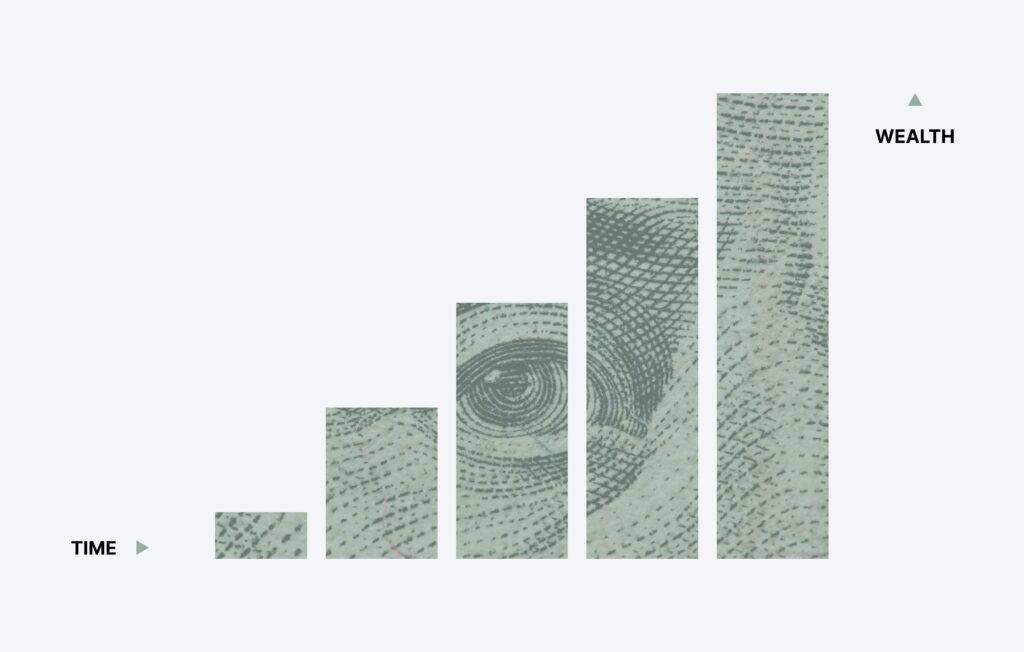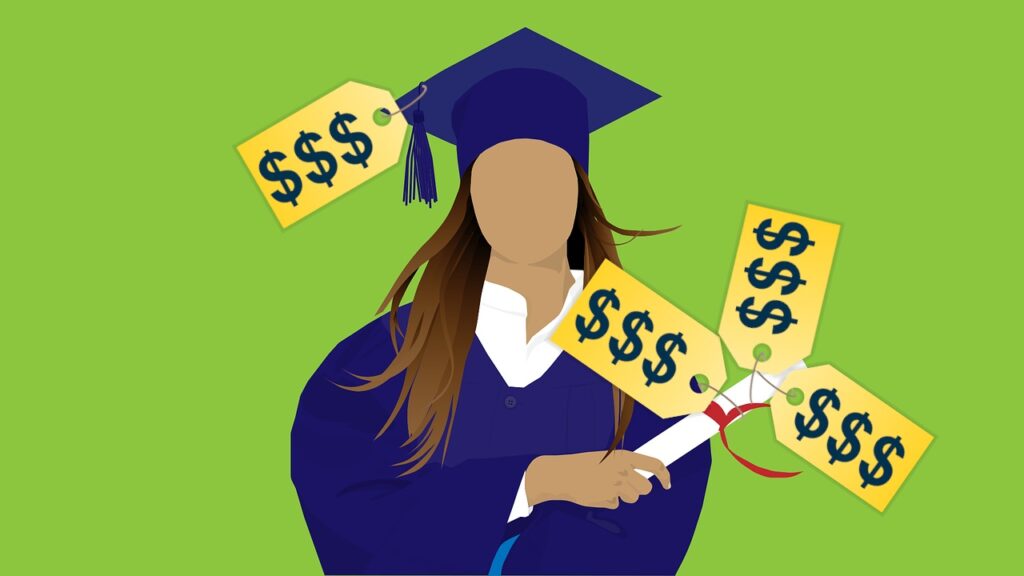Lack of Personal Finance Courses in High School – Why You Should Care
Should They Teach Personal Finance in High School?
If you’ve ever been confused about personal finance decisions or topics as an adult, you understand how it feels to have financial illiteracy. You go through 12+ years of school and learn math and English literacy, but what about personal finance in high school?
It seems like no one teaches it anymore, right?
Sure, you can communicate and handle even the toughest math problem, but what happens when it comes to your finances? We’re talking beyond balancing a checkbook (although many people don’t even know how to do that), but about understanding compound interest, capital gains, credit card debt, and emergency funds.
Most people leaving high school have less than a basic understanding of how personal finances work. It’s time to change the tide and educate our future leaders. Young adults need a solid understanding of how money, budgets, credit, investments, and even credit scores work before they even head off to college.
Is Personal Finance Taught in High School?
According to a 2016 Bank of America study, only 31% of young Americans said they got a solid understanding of personal finance in high school. In the same study, young Americans were asked what they wish their high school had taught them more of and 43% answered ‘learn how to invest’ and another 40% said ‘how to do taxes.’ At the bottom of the list were questions about learning how to do household chores or even how to be a good public speaker.
It’s evident that students want to learn the tough stuff – they stuff they can’t teach themselves and that will affect them the rest of their lives. A personal finance course could make the difference between a young adult knowing how to budget and start saving for retirement or growing up with no savings and no retirement accounts to rely on.
Personal finance knowledge helps you create a great future. Without it, you won’t have financial peace, which often leads to ill feelings both physically and mentally. When you understand your finances and can create security for you and your family, it’s easier to do the other things you need to do in life.
Why is Money Management not Taught in High School?
While we’ll never know why most high schools across America fail to teach personal finance in high school, there is one common denominator. They all think the responsibility should fall on the parents.
While there are many tasks that parents should do and skills parents should teach their children, many aren’t capable of teaching personal finance. Parents can’t teach kids skills they don’t have themselves.
In a T. Rowe Price study, almost 70% of parents admitted they didn’t want to discuss finances with their kids. In many households, finances are a ‘taboo topic.’ Kids are taught not to talk about it and parents have difficult financial conversations in closed rooms without kids.
If high schools think parents should teach it and parents think schools should teach it, the only people hurting here are the students.
According to a 2017 National Report on State Efforts to Improve Financial Literacy in High Schools, more than half of the states received a grade of ‘C’ or lower in financial literacy. Schools reported there is a difference between basic or even advanced math and more complex topics like compound interest and understanding a Roth IRA. Most schools focus on the basics while overlooking the personal finance component.
Should Personal Finance be Taught in High School?
The bigger question here is money management be taught in high school? What benefits do students get?
First, we’ll state the obvious – students will learn basic financial literacy. No one can enter adulthood, and for some, that’s right out of high school, without knowing how to balance a checkbook, understand savings accounts and compound interest, and the basics of investing.
Entering adulthood means many big decisions and access to financial products that could make or break you. Facing credit card offers in the mail and online daily, seeing advertisements for ‘buy now pay later’ on almost every website, and seeing how easy it is to get loans online without ever stepping foot into a bank is a recipe for disaster for those who were never taught the basics of personal finance.
Benefits of Financial Literacy as an Adult
Everyone needs a basic personal finance understanding, but there are many benefits for young adults to have a solid financial literacy as an adult
Here are the top benefits.
- Young adults will understand checking accounts, savings accounts, debit cards, and credit cards and be able to make sound decisions when using them.
- There will be a better understanding of more complex issues, like mortgages, payday loans, and car loans. Not understanding the basics of how they work, how to qualify, and what to watch out for could leave many people in over their heads in debt, filing bankruptcy, and never getting ahead.
- High school students can make informed decisions about college, where to attend, and how to pay for it. High school students who don’t have personal finance training may take any and all student loans put in their path, which could lead to financial devastation even in their 40s and beyond.
- Adults will understand how to budget and stop living paycheck to paycheck. Without personal finance in high school, students can leave high school as 18-year olds, with access to financial products they don’t understand, including credit cards and loans. Getting into debt often leads to living paycheck-to-paycheck and never getting ahead.
- Adults will know how to budget and feel empowered to make tough financial decisions. It’s not easy to decide where to allocate your funds when you have only a finite amount. With a personal finance course, graduates will feel educated enough to understand how to allocate their funds, make tough decisions, and know when it’s okay to spend and when they should cut back.
- Adults will understand credit scores, how they work, and how to improve their scores. They’ll learn how a credit score affects their life, and how even one late payment or one defaulted account can wreak havoc on their financial life.
Disadvantages of Not Understanding Personal Finances
Without teaching personal finance in high school, many adults find themselves at a disadvantage. Here are just a few ways they suffer.
- It’s hard to achieve your financial goals. When you don’t understand compound interest, the importance of investing or saving early, and how to budget, reaching your financial goals can feel a lot like climbing Mt. Everest.
- There’s a lack of financial control. Without understanding how to budget, most people live paycheck-to-paycheck and hope they can pay their bills. They don’t understand how budgets work, how to allocate their money, or even how to pay their bills on time.
- It’s easier to get into debt. Today it’s easier than ever to get in over your head in debt. School debt, credit cards, car loans, mortgage loans, and personal loans are all ways to drown in debt. When it’s easy to get the loans, you don’t think about the consequences if you don’t understand personal finance.
- It’s easy to suffer when financial emergencies come up. Without personal finance courses, most people aren’t aware of emergency funds, their importance, and how to start/save one. What happens when your car breaks down or you have a medical emergency? It becomes a vicious cycle of debt, late payments, and getting in over your head.
- You won’t understand credit scores and how they affect you. Everyone knows we have credit scores, but without proper training, you don’t realize how much they affect your life. Not only do they control what loans you can or can’t get, but they also control the interest rates you get, the loan fees, your insurance premiums, and even the job you can get.
Should they Teach Money Management in High School?
If we want to have educated adults leading our future, they should teach personal finance in high school. It’s the only way to lay the foundation and help our future leaders realize the importance of personal finances.
Students that go off to college may get a mediocre personal finance course in college, but those who go right into the workforce must rely on their families or peers to teach them. Since money is a ‘funny’ topic among friends and family, many won’t even broach the subject.
Today, fortunately, there are courses and resources online anyone can use to get a basic understanding of personal finance, but the sooner you learn about it the better off you are. Why fight your way out of debt or fight to bring your credit score up again when you could avoid the difficulties from the start?







